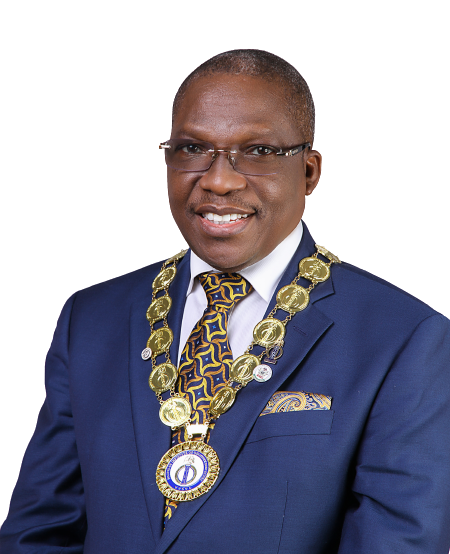Mr Michael Shonubi, President of the Nigerian Institute of Quantity Surveyors (NIQS), in this interview, says fixing the power sector will lower the cost of construction materials, especially cement. He also says applying stiffer sanctions against those responsible for building collapse in the country will end the disaster.
When you were made president of the NIQS you prioritised professional training for your members and some reforms. You are at the tail end of your tenure now, how have the reforms and training effected changes in the institute?
Well, the reforms will never stop; we are still going through them, particularly the ones that have to do with staff. Hopefully, in a couple of weeks, we will conclude that. On the training we have engaged in quite a number of training both physically and virtually.
We initiated and undertook quite a number of professional development training on ethics in conjunction with the Centre for Business Integrity and we were able to effectively carry out about six training programmes on different aspects of professional ethics. We focused on ethics because that is the bedrock of every profession. We believe that the major challenge facing Nigeria is the lack of professional ethics. When we hear of buildings falling, whichever way, there has not been strict adherence to professional ethics; because if there is strict adherence to ethics, those buildings will not come up in the first instance, talk more of them collapsing as a result of one thing or the other.
- Kaduna Poly unions threaten strike over insecurity
- Sokoto spends N1.4bn on township roads; empowers 1,280 youths, farmers
The recent case is the collapse on Lagos Street here in Abuja, which we are yet to understand what caused it but we have had so many collapses in this industry and the more you look at it, the more you realise that there’s been some sharp practices. If all the professionals involved in the building process act ethically, there won’t be need for sharp practices.
Professional ethics, however, do not only apply to those in private practice but those in government as well. There are professionals in government circles who are supposed to oversee the process of granting building approvals. Do they do their duty diligently; do they do their duty clearly before granting the approvals? If they had, those buildings would not collapse.
And on the part of those in consulting and private sector, do they apply due diligence when the construction was going on? Forget what the developer says. If the building owner could do the job, he wouldn’t engage you in the first instance. So if that particular building owner engaged you he might have figured out that ‘I can’t handle this, I don’t have the expertise.’ And if you are consulted and you are supposed to give your professional opinion and expertise in ensuring that the building stands, how come the building failed?
This conversation has been on for years now, with other professionals in the industry also proffering solutions just as you have done now but we still have buildings collapsing. Do you think enough action has been taken to forestall building disasters?
I am not sure we have taken serious action to stop buildings from collapsing. There must be sanctions, serious sanctions. The moment you don’t apply sanctions, then the kind of things we have now will continue.
For every building that collapses, there are people that suffer. You have the artisan who is on-site, who is married and is the breadwinner, and by the time he dies in a building collapse his family loses their breadwinner and they will never recover. You have instances where the wife is depressed. So you have people who have been killed and the person responsible is walking free. How is that person different from the armed robber who comes, kills somebody and takes away his property?
So I was thinking because of the frequency of the collapses, drastic action must be taken; maybe everybody will sit up, both on the sides of the developer and the consultants—private and government.
The Minister of Works, Engr. David Umahi, recently said he was considering using concrete for road pavements. As a professional in materials and cost management, what is your take on this method of road construction?
For me, it has to do with the question of cost and that is why the Nigerian government has been running away from that. Most of our roads have been constructed using asphalt and bitumen. In every society, adopting a change is always difficult but we will get there. Now we have so many cement manufacturing companies but because of so many factors—energy cost and haulage cost—it has been difficult to get the price of cement to come down.
Ordinarily, concrete would have been the ideal because we have the requisite raw materials unlike bitumen that we do import, even though unfortunately, we have a large reserve of bitumen deposits between Kogi and Edo on which there had been various attempts to exploit between 1999 and 2003 but that have not come to fruition.
But until we work on our power sector, the prices of materials will still be high. So government can work to ensure that the price of cement can come down. But like I said, everywhere you go in this country, the complaint is that the cost of power is the reason the costs of materials are higher.

